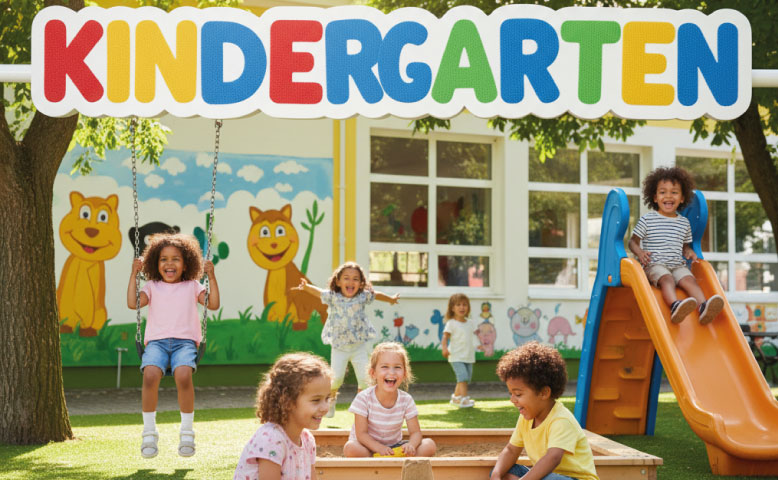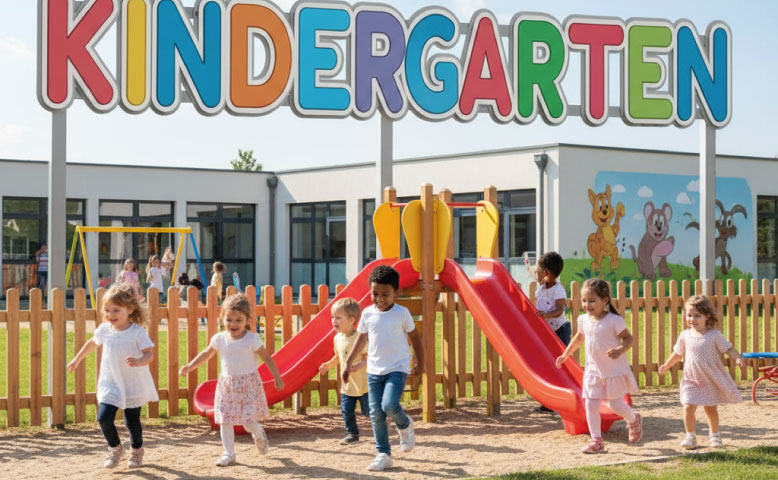Table of contents
Preschool is often a child’s first step into the world of structured learning, social interaction, and early skill development. For many parents, choosing the right preschool can feel overwhelming because it involves evaluating multiple factors related to safety, quality, teaching methods, values, environment, and long-term readiness. This complete parent guide is designed to simplify that process. It provides clear, practical information to help families make informed decisions that truly support their children’s growth. Whether you are a first-time parent or navigating the process again with a younger child, this article will walk you through every important aspect of identifying the best preschool for your child.
Understanding the Role of Preschool in Early Childhood Development
Before evaluating schools, it is important to understand why preschool matters. A high-quality preschool helps children build foundational skills that influence academic success, social confidence, emotional regulation, and curiosity. During the preschool years, children experience rapid growth, and structured early learning environments can support that development in several ways.
Key Benefits of Preschool
- Socialization: Preschool encourages interaction with peers, helping children learn cooperation, empathy, and communication.
- Early Literacy and Numeracy: Through stories, play-based lessons, and guided activities, children begin recognizing letters, numbers, shapes, and patterns.
- Motor Skills: Preschool environments support both fine motor skills (writing, drawing) and gross motor skills (running, climbing).
- Independence: Children practice routines, cleaning up, and making choices, building confidence.
- Emotional Development: Preschool teachers guide children through identifying emotions, resolving conflicts, and expressing themselves appropriately.
Understanding these benefits helps parents prioritize what matters most when reviewing preschool options.

Types of Preschool Programs to Consider
Different families have different values, goals, and expectations. Fortunately, the preschool landscape offers a variety of program types. Each has a particular educational approach, and knowing the distinctions can help you select a preschool that matches your child’s learning style and your family preferences.
Montessori Preschool
Montessori preschools emphasize independence, hands-on learning, and self-paced progress. Classrooms typically feature child-sized materials and mixed-age groups. Children choose their activities, and teachers act as guides rather than direct instructors.
Reggio Emilia Preschool
This approach focuses on creativity, self-expression, and project-based learning. Children work collaboratively, and the classroom environment is designed to spark curiosity. The preschool curriculum emerges from children’s interests.
Play-Based Preschool
A play-based preschool prioritizes exploratory learning through structured and unstructured play. Teachers introduce concepts organically as children engage with materials, peers, and activities.
Academic-Focused Preschool
Some parents prefer a more structured preschool setting focused on early literacy, mathematics, and preparation for kindergarten. These programs include teacher-led lessons, worksheets, and measurable learning outcomes.
Cooperative (Co-Op) Preschool
A cooperative preschool involves parents as active participants. Families volunteer in the classroom, support events, and contribute to daily operations. These preschools foster strong parent-teacher partnerships.
Evaluating the program type allows parents to align the preschool environment with their child’s needs and personality.

Factors to Consider When Choosing the Best Preschool
Selecting the best preschool requires a structured evaluation process. The following key factors can guide parents toward a well-informed decision.
1. Preschool Location and Convenience
Proximity matters because it affects daily routines. Consider whether the preschool is close to home, work, or a caregiver. Shorter commute times can reduce morning stress and help maintain consistency.
2. Safety and Cleanliness Standards
Safety should be a non-negotiable. Look for:
- Secure entrances and exits
- Clean classrooms and restrooms
- Well-maintained playgrounds
- Clear emergency procedures
- Teacher-to-child ratios that comply with local licensing requirements
Do not hesitate to ask the preschool director about safety protocols and cleanliness schedules.
3. Teacher Qualifications and Experience
Teachers are the heart of any preschool. Look for educators with:
- Formal training in early childhood education
- Experience working with preschool-aged children
- A calm, supportive communication style
- Ongoing professional development
A high-quality preschool team should also show genuine enthusiasm for working with young children.
4. Preschool Curriculum and Teaching Philosophy
Ask about:
- Daily schedules
- Literacy and math introduction methods
- Whether learning is play-based or academically focused
- Approaches to creativity, music, and physical activity
- How teachers support different learning styles
A transparent curriculum helps ensure alignment with your child’s educational needs.
5. Classroom Environment
During a preschool visit, observe:
- The classroom layout and organization
- The number and quality of learning materials
- Engagement levels among children
- Teacher-child interaction
- Availability of outdoor play areas
A warm, inviting preschool environment contributes to a child’s comfort and readiness to learn.
6. Class Size and Ratios
Smaller classes and low child-to-teacher ratios allow for more personalized attention. Many parents prefer preschools with smaller groups, especially for shy or sensitive children.
7. Preschool Communication Practices
Effective communication between families and the preschool is essential. Ask how the school shares updates:
- Weekly emails or newsletters
- Parent-teacher conferences
- Daily progress reports
- Photos and activity summaries
Transparent communication builds trust and ensures parents remain involved.
8. Cost and Budget Considerations
Preschool tuition varies widely. In evaluating affordability, consider:
- Monthly tuition
- Application fees
- Material fees
- Extended-care costs
- Scholarships or financial assistance
A great preschool should fit both educational expectations and the family budget.
Questions to Ask During a Preschool Tour
A preschool tour provides firsthand insight into the environment, routines, and staff interactions. Below is a list of recommended questions to ask administrators and teachers.
Questions About Curriculum
- How does the preschool structure the daily schedule?
- How are literacy and numeracy introduced?
- What is your approach to discipline and conflict resolution?
Questions About Teachers
- What training and certifications do teachers hold?
- How long have staff members worked at this preschool?
- How do teachers support children with different temperaments or needs?
Questions About Environment
- How often are toys and surfaces cleaned?
- Is the playground supervised and secure?
- Do you offer outdoor play in all seasons?
Questions About Family Engagement
- How do you update parents on progress and activities?
- Are there opportunities for parents to volunteer?
- How do you handle concerns or special requests?
By asking detailed questions, parents can understand whether the preschool’s values align with their own.
How to Evaluate Your Child’s Readiness for Preschool
Even with the best preschool available, timing matters. Assessing readiness helps ensure the transition is smooth.
Developmental Indicators of Preschool Readiness
- Ability to follow simple instructions
- Interest in interacting with other children
- Basic communication skills
- Ability to manage short separations from caregivers
- Some level of independence (e.g., washing hands, simple self-care)
Readiness does not mean perfect behavior or advanced skills. It simply means the child is prepared to benefit from a structured preschool environment.
Creating a Smooth Transition into Preschool
Once you have chosen a preschool, preparing your child is an essential next step.
Practical Tips for Preschool Transition
- Begin discussing preschool weeks in advance.
- Visit the playground together before the first day.
- Establish consistent morning and evening routines.
- Encourage independence through simple tasks at home.
- Provide reassurance and remain calm during drop-off.
Transitions vary for each child. A supportive, patient approach helps make preschool a positive experience.
Red Flags to Watch Out for in a Preschool
While many preschools uphold high-quality standards, parents should remain alert to potential concerns.
Common Red Flags
- High teacher turnover
- Lack of transparency in policies
- Poor communication or disorganized administration
- Unclean classrooms or unsafe materials
- Limited opportunities for outdoor play
- Overcrowded classrooms
- Teachers who appear disengaged or overwhelmed
If you notice several red flags, it may be best to continue your search.
Making the Final Decision
After researching, touring, and comparing options, parents should weigh all factors carefully. Consider:
- Your child’s temperament
- Your family’s daily routine
- The preschool’s educational approach
- Your comfort with staff and environment
Trust your instincts. A preschool should feel welcoming, safe, and aligned with your expectations.
Conclusion:
Choosing the best preschool for your child is a significant decision, one that influences early development, social confidence, and readiness for future academic experiences. By understanding the role of preschool, comparing different program types, evaluating key quality indicators, asking the right questions, and assessing readiness, parents can make a thoughtful and informed choice. The right preschool provides not only structured learning but also a nurturing environment where children can explore, connect, and grow. With careful consideration and active involvement, you can identify a preschool that supports your child’s journey and helps them build strong foundations for lifelong learning.
🌼 Your gift: 10 diverse books you can enjoy reading 🌼
